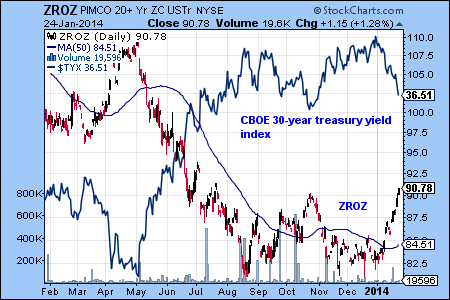When Should I Sell All My Bond Mutual Funds
Post on: 16 Март, 2015 No Comment

Since 2008, bond mutual funds have been in fashion. The financial crisis that reached its acute phase during that year wreaked havoc on equities markets around the globe. Between late 2007 and early 2009, the Dow Jones Industrial Average and the S&P 500 both fell by nearly 60 percent. By March of 2009, these indexes had reached multi-year lows and looked poised to continue falling. In a panic, investors who had relied heavily on risky stock holdings fled equities and sought safety in the global bond markets. Mutual fund managers chased this trend as well: During the depths of the financial crisis, dozens of fund managers significantly decreased their stock holdings and increased their government and corporate bond holdings.
Many financial experts warn that this ongoing trend creates an unsustainable imbalance between the dueling markets for equities and bonds. They reason that fund managers will eventually have to pull back from bonds and reinvest in stocks. When this occurs, stock prices should rise even as bond values fall.
Of course, stock prices have risen considerably since the market's 2009 bottom. However, bond prices have remained elevated. This is especially true for bonds issued by the governments of countries perceived to be economically stable. For instance, bonds issued by the governments of Germany and the United States remain very expensive by historical standards.
In the near future, it's unlikely that this arrangement will change appreciably. The state of the global economy remains fragile. Many American businesses worry that ongoing social and economic instability in Europe could still affect their operations and earnings. As such, the country's fund managers are unlikely to dump their bond holdings en masse.
However, there are certain situations in which you might consider selling individual bond-heavy mutual funds. If the leadership or ownership of your fund changes, its performance could suffer temporarily. In this case, it may be beneficial to reduce or eliminate your position.
Likewise, you may wish to sell a fund that consistently under-performs its peers. These days, bond-heavy mutual funds are likely to produce predictable but unspectacular returns. If you believe that you could benefit from investing in another asset class. you may wish to sell your bond funds and purchase stock funds.
Finally, you should sell your bond funds in the event that the rate of inflation rises. Since their rates are fixed over long periods of time, bonds perform poorly in the face of inflation. Stocks tend to offer better returns in an inflationary economy.














